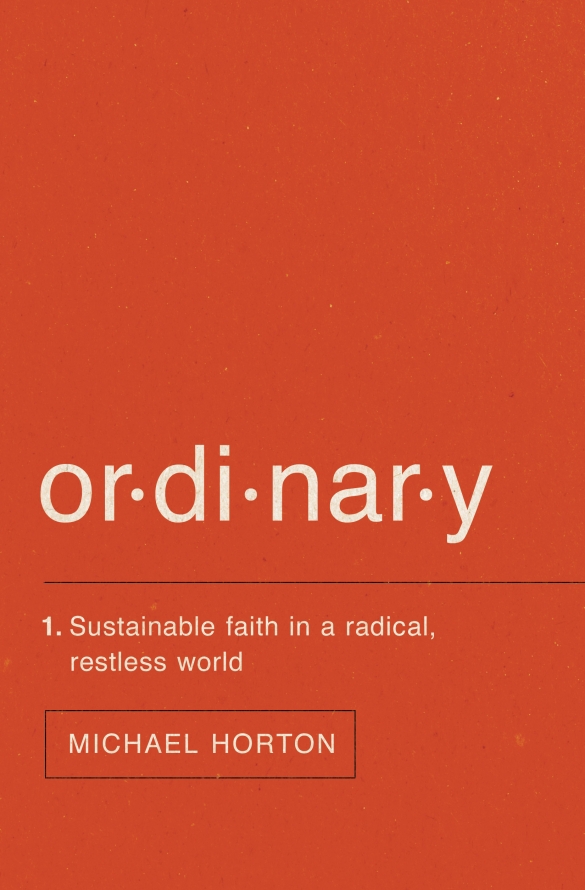Dr. Andrew Davis is pastor of First Baptist Church in Durham, North Carolina. After graduation from MIT, Andy spent ten years working as a mechanical engineer and two years as a missionary in Japan.
The following interview revolves around Andy’s book, An Infinite Journey: Growing Toward Christlikeness.
Moore: You have plenty to do as a pastor, so what were the factors that led you to hunker down and write An Infinite Journey?
Davis: The content that eventually blossomed into An Infinite Journey came from a desire to define what we were shooting for in our discipleship of growing believers at FBC Durham. I was trying to answer the question, “What is spiritual maturity?” As I continued to meditate on that question, I also looked carefully at an underemphasized aspect of the Great Commission in Matthew 28:18-20. There the Lord commands us to make disciples of all nations, baptizing them, and then teaching them to obey everything He has commanded us. That last phrase so often eludes missionaries and pastors… they don’t meditate as they should on how comprehensive that command is.
So I sought to probe the depths of “everything Christ has commanded us” and it led to a ton of material, a ton of insights. I then sought to organize them into main areas and headings. This was all in the service of a local church pastor’s efforts to bring disciples to full maturity in Christ. Writing itself is a discipline that benefits the church and anyone else who might be able to read it. It forces clarity and refinement, so it was worth it to me to invest the time and write all these things down.
Moore: Most of us understand that certain habits like Scripture memory are integral to forming godly character. Given all that, why is the notion of “disciplining ourselves for the purpose of godliness” viewed by many as legalistic?
Davis: I think there is a struggle for all of us to understand the astonishing grace of God in justification–full forgiveness of all sins, past, present, and future simply by faith in Christ apart from works–and how it is different from sanctification–the cooperative process in which the Holy Spirit empowers us to make stern efforts toward mortification of sin and growth in Christlikeness. Because we confuse these things, some people lurch in one direction or another–some toward antinomianism (denying that our obedience to the moral laws of God has any proper place in the healthy Christian life) and legalism (thinking that our sanctification is worked out completely on our own, and that by our own efforts we keep ourselves in good standing with God and grow ourselves in Christ. These are both deadly errors.
The New Testament teaches that sanctification is different than justification specifically in the role that our effort–our hard labor–plays. We are not told to work out our justification with fear and trembling but our “salvation” (Philippians 2:12-13), but we are also told there that it is God who works in us to will and to do according to His good pleasure. Also in 1 Cor. 15:10, Paul says “By the grace of God I am what I am; and His grace to me was not without effect. No, I worked harder than all of them, yet not I, but the grace of God which was in me.” In other words, in sanctification, God’s Holy Spirit works in us first, and then we respond by working hard as a result. But without that hard work on our part, we will not grow. Spiritual disciplines are essential to that. So that is why people wrongly view spiritual disciplines as legalistic–because they don’t understand the difference between justification and sanctification, and how God’s grace works in both.
Moore: In 2004 I sent you an email wondering about your own habit of Scripture memory and review. I had just read an unpublished version of your approach to memorizing Scripture. You mentioned at the time you had memorized every book of the New Testament except Mark and Luke. You also wrote that you memorized Deuteronomy, Isaiah, Habakkuk, Jonah, Ruth and many chapters of the Psalms.
As one who has benefitted greatly from the Scripture I’ve memorized (though nothing longer than a chapter of the Bible!), I find your example motivating. I understand you may be reticent to answer this question, but how do you encourage people to follow your example without them feeling they could never come close to memorizing so much?
Davis: I love to talk to people about the value of Scripture memorization! I feel like I’m selling stock in Microsoft circa 1985–it’s blue chip stock and it’ll make you wildly rich if you’ll just invest in it! The value of Scripture memorization starts with the role of Scripture in our Christian lives as a whole. “Faith comes by hearing God’s word” (Romans 10:17), so we come to initial faith in Christ by hearing the word. So also we are sustained and strengthened in our faith by hearing the word of God. We live not by bread alone, but by every word that comes from the mouth of God. (Matthew 4:4) Our faith gets stronger by a constant and rich diet of the Word, and as we are memorizing, we are thinking deeply about the noblest, best, truest, more helpful things in the universe. Scripture memorization helps in every area of the Christian life: prayer, bible teaching/preaching, counseling, evangelism, discipleship, apologetics, marriage, parenting, etc. The more you can take in, the better it will be for you.
People don’t need to compare themselves to anyone else in this matter–not to me, or anyone. They just need to do it for their own soul’s sake, and for maximum fruitfulness on Judgment Day. The volume of my efforts has been unusually large, but that was merely a gift of God’s grace given me on loan to build up His body, the church. Others just need to be faithful to whatever God is calling them to do personally.
Moore: I had some good models early on who encouraged me to not just memorize Scripture, but also make time to do regular reviews of those verses. Given how much you have memorized, how do you keep up your review?
Davis: I actually have changed some in my convictions on review. I think that people should finish learning a section of Scripture and review it every day for 100 consecutive days. But then, they should kiss the book goodbye and do another book. This should be a commitment for the rest of your life, to keep learning more and more new books. The goal is a comprehensive knowledge of the whole of Scripture. Most people have a pretty clear limit on what they can keep uploaded on the desktop of their memory. To try to keep the last book continually refreshed may take away from efforts to learn a new book. Put your effort there! So, review for one hundred days, then move on.
Moore: You include some charts and graphs on the spiritual life that typically make me a bit nervous. I am leery of such things because they tend to simplify the process of sanctification when reality tends to be messier. I was glad you conceded that these charts and graphs could be misused. Would you describe some of these misuses?
Davis: What I wrote in the book was that the charts were merely meant to be instructive about aspects of sanctification, and the various experiences of sanctification that people can have in the church. Some make more rapid progress, others not so much. To look to these charts as precise in any way and not merely suggestive is to misunderstand them. Sanctification is complex (look at how long the book is!!), there’s no way to get one line to sum up all of what God is doing in a Christian’s soul at any given time. The person could be thriving in prayer but getting weak in evangelism, or lazy in finances, etc. The charts should not be pushed for detail, only for the doctrine that supports them and the variety of experiences they seek to illustrate. They are little different than a good sermon illustration. No sermon illustration perfectly captures anything–but it helps the lights to go on. The greatest danger with the charts is that they can lead to false despair or false assurance. We should be sensing the Spirit’s assessment of our spiritual progress, not thinking some chart can give it to us.
Moore: One of my favorite things about your book is the emphasis on personal holiness. Being on mission is being talked about a lot today, but talk of personal holiness seems to have gone the way of the Dodo bird. There are some notable exceptions like Kevin DeYoung’s The Hole in our Holiness, but these are just that, exceptions. Why the lack of conversation about holiness, and I am talking about within so-called evangelical circles?
Davis: I agree with your assessment, but I don’t know that I can explain it accurately. Perhaps there has come a man-centered franticness over the missionary thrust of the church, “Millions dying every day without Christ!!!!” like Hudson Taylor would say about China which has caused some people to downplay the need for thoroughness in discipleship and maximize the need for evangelism/missions and getting people simply to “pray the sinner’s prayer.” But this is just not faithful to the Great Commission, as I mentioned above, or to the obvious press of the New Testament to bring converted people to maturity. Perhaps some people view a strong emphasis on effort in sanctification as legalistic, as you mentioned earlier. My desire is to restore some biblical balance to this, without in any way minimizing the laudable and needed urgency toward world evangelization.
Moore: Your book includes many wonderful illustrations from history. How much reading of history should the growing Christian do?
Davis: I absolutely love reading accounts of godly men and women from the past for my own motivation and strengthening in the faith! It is so very helpful to us, strengthening our resolve, instructing us in how to face the exact same challenges they faced, since Satan hasn’t changed his approach at all over the centuries.
I would strongly urge all Christians to devote a healthy amount of time to reading missionary biographies, or well-written church history texts, or other motivational books from history. It is certainly not as vital as reading Scripture, but it greatly expands your horizons and is a rich source of strength for the Christian journey. We’re going to spend eternity going over the mighty deeds of the saints in heaven by the light of the true account God will give us then… it’ll be a great measure of our sweet fellowship in heaven to celebrate what other saints have done in service to Christ.
Moore: An Infinite Journey is accessible, but not superficial. Who is the primary audience you were writing for?
Davis: I was seeking to write for a standard church audience: all Christians who want to grow; but especially pastors, disciplers, campus workers, parents, church planters, missionaries… anyone who needs an answer to the questions, “What is spiritual maturity? and How can I get there?





